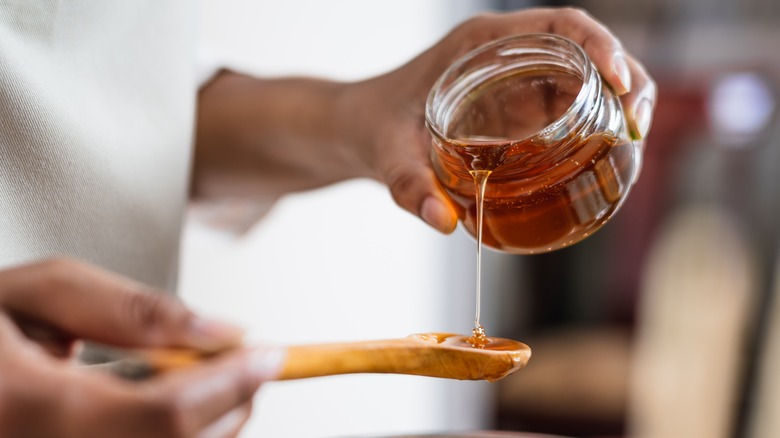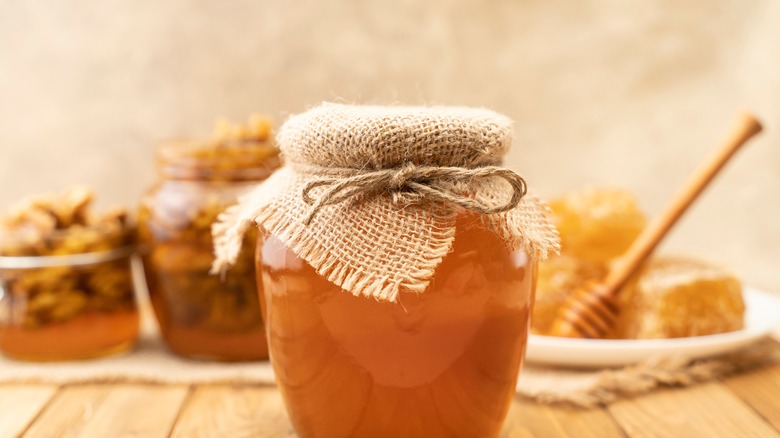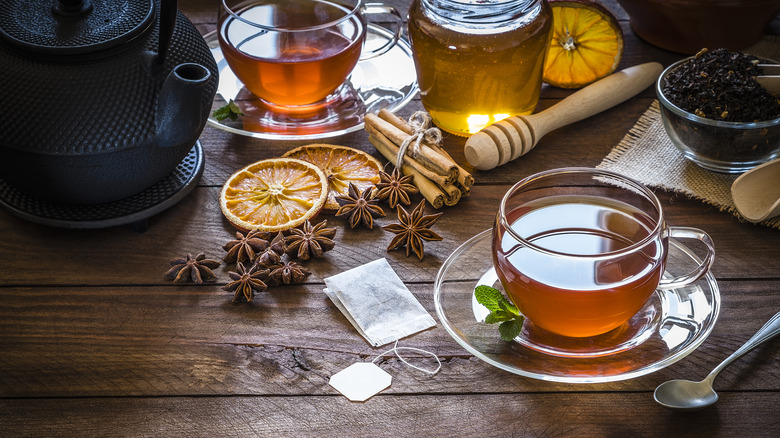Honey Was Used For Medicinal Purposes In Ancient Times
What's your go-to cure for headaches? An extra cup of coffee? Advil? If coffee was your answer, ancient doctors would probably tell you to find a sweeter remedy. In ancient Egypt, doctors looked in the kitchen cupboard when treating illnesses and injuries. Back then, explained a report in the 2018 issue of the Journal of Apicultural Research, honey was a go-to healing substance, a practice that was not restricted to Egypt. The report notes that "honey was used as a remedy against a variety of illnesses in ancient Egypt, Greece, and Rome" as well as in "traditional Chinese medicine and Ayurveda" or ancient Indian Medicine.
Many ancient texts citing honey's medicinal properties have been unearthed. The Ebers Papyrus (Egypt, circa 1550 B.C.) lists nearly 150 medical uses for honey — and that's just for outside the body! And in ancient Greece, Hippocrates, the namesake of our Hippocratic oath, wrote that honey "cleans sores and ulcers, softens hard ulcers of the lips, heals carbuncles and running sores." Suffice it to say that while nowadays pharmacology is left to humans, many of the ancient medicine-makers were bees.
What does modern science say?
A 2013 report in the Iranian Journal of Basic Medical Sciences notes that "honey has been reported to have an inhibitory effect on around 60 species of bacteria, some species of fungi and viruses," and cites other research that attributes anti-inflammatory properties to the syrupy treat.
Some of the diseases whose bacteria are weakened by the presence of honey include cholera, pneumonia, urinary tract infections, and tuberculosis. A recent study in the scientific journal Nutrients even suggests that honey has properties that could slow the impact of Alzheimer's and dementia.
While modern doctors agree with the ancient doctors on honey's many healing properties, they add that you should not feed honey to children under the age of one, as honey can cause infant botulism, a rare intestinal condition that can be fatal. For those over toddler age, if you have a small amount of honey in your daily diet, you might expect to have fewer sore throats and less inflammation in your digestive tract.
Choosing the best honey for you
In Jewish culture, honey is eaten in the fall on the Jewish new year, Rosh Hashanah, to signify a sweet new year, and this becomes an opportunity to try many types of honey. Whether for religious, medicinal, or taste-related reasons, it's worth exploring the many types of honey to find out which is your favorite.
If you plan to spread your honey on bread, as Jewish people do on challah bread for Rosh Hashanah, you can consider manuka honey, which has a creamy texture and is less syrupy than your typical honey. And if you want a honey that goes well in a cup of tea, then you have plenty of options. A good rule of thumb is to match the color of your honey to the color of your tea, so use a milder honey in a light tea, and a richer honey in a dark tea.
No matter what honey you choose, doctors — both modern and ancient — agree that you're making a beneficial choice.


